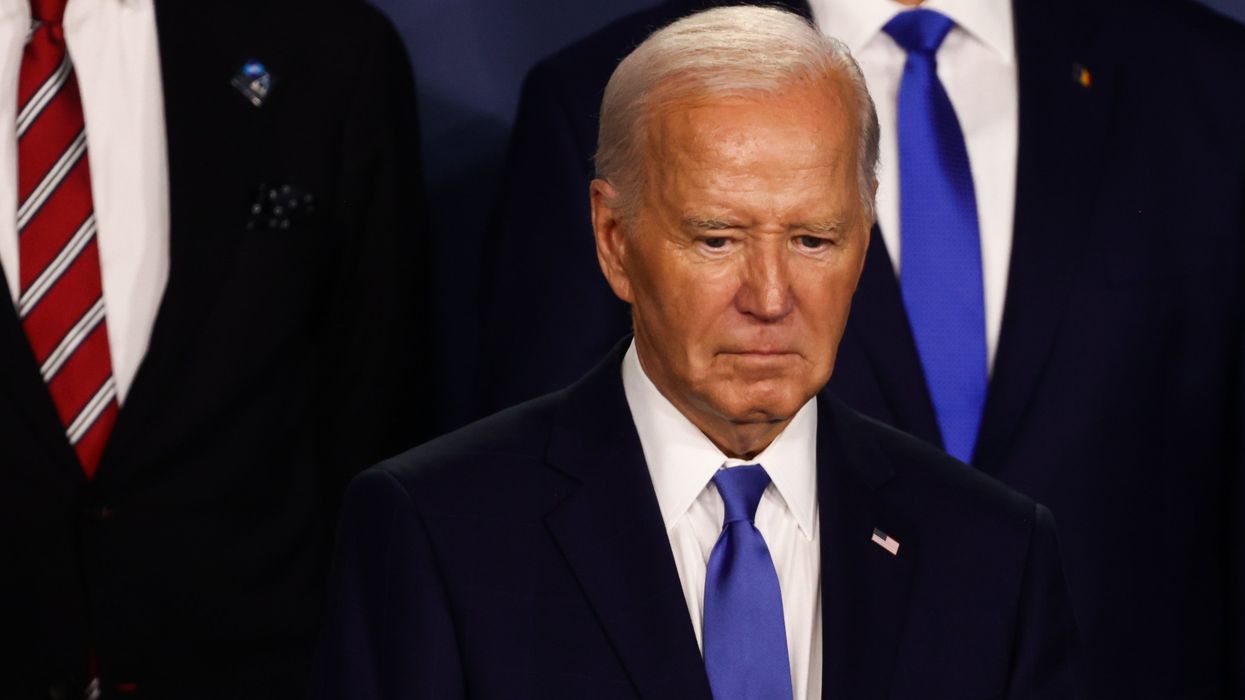Ernst is a volunteer and state leader at Veterans for All Voters.
By dropping out of the 2024 election, President Joe Biden accidentally made a whole new case for ranked-choice voting, an election reform generally opposed by the Democratic Party. Oops.
If Biden had chosen to not seek reelection a year ago, Vice President Kamala Harris would've had to compete against a half-dozen or so other contenders. It would have been a tough fight, much like her first attempt four years ago (when she was quickly eliminated). Who knows how she would have fared in a 2024 primary, but whoever became the eventual nominee would’ve been better postured going into the general election because the process of becoming nominee is helpful to generating authentic momentum.
Despite all the new energy, polling shows Harris actually isn't all that popular, and only marginally improves the Democrats' outlook for November. She fares better than Biden, sure, but she’s still neck-and-neck with Donald Trump in swing states, so no one should pop the champagne just yet. Regardless of how you feel about Harris and her ascent, we can only fault Biden so much. Instead, let's look at the process that got us here.
If you have a good process, you get good results
We could play "coulda, woulda, shoulda" all day long and think through the alternatives. But it doesn't have to be that way. If the Democratic Party, or both major parties, utilized ranked-choice voting, a clear process would show which candidate would be Plan B (or Plan C). This is helpful in a whole host of circumstances. What if the nominee has a heart attack? What if they are mired in a corruption scandal after primaries? What if …whatever? In a ranked-choice voting system the second place winner would be known, having been determined by the peoples' voices — unlike today.
Embracing this construct isn’t just good for the parties, but also good for the candidates, the platforms and ultimately the nation. Ranked-choice voting would also ensure there is always a competitive primary process, even when there is an incumbent (especially a questionable one).
Over the past six months, the Democratic primary was simply not competitive — it was all Biden, because the incumbent will always have an insurmountable advantage. Those who did choose to run against Biden weren't even on the ballot in several states, so there was never a question of who would win the nomination.
There were no debates, no discussion about platform and the thorny issues on Americans’ minds. There was nothing. That's a recipe for stasis at best, and for crisis at worst. After Biden’s terrible debate performance, the Democratic Party got a taste of crisis.
If you have good results, you will get good momentum
Regardless of how you may feel about Harris being the Democrats' nominee, it should sit oddly with everyone how easily she ascended to the top of the ticket. All that needed to happen was to be endorsed by Biden and the party establishment, which became a self-fulfilling prophecy. And here we are — she is the nominee because that's just how it is. Accept it.
Even esteemed pro-democracy publications like The Atlantic somewhat celebrate the return of party elites in smoke-filled rooms installing a nominee irrespective of, or even intentionally contrary to, the peoples’ intent. But can Harris’ ascendency translate into bonafide momentum that will carry her through November and into a successful term? Who knows, but the lack of process is now a massive liability for her and the party.
If she loses in November, or if she wins and becomes anything less than a stellar president, then the Democratic Party will have immense buyer's remorse and voters rightfully will demand serious reforms to ensure the party cannot repeat such an egregious series of mistakes, one after another.
So how do we get here?
With the electoral process mostly managed at the state level, it'll be up to states to pass laws to enable primaries via ranked-choice voting. Wherever you are reading this, know that you can help make change real. There are hundreds of reform organizations around the country, trying to bring about changes like ranked-choice voting in every state, and they are ready for new volunteers like you.
Also, consider writing to your state representatives to let them know the time for electoral reform has arrived. And most importantly, talk to your friends and relatives about these ideas.
Just about everyone agrees that this system is malfunctioning, so let’s do something about it, one conversation at a time.




















